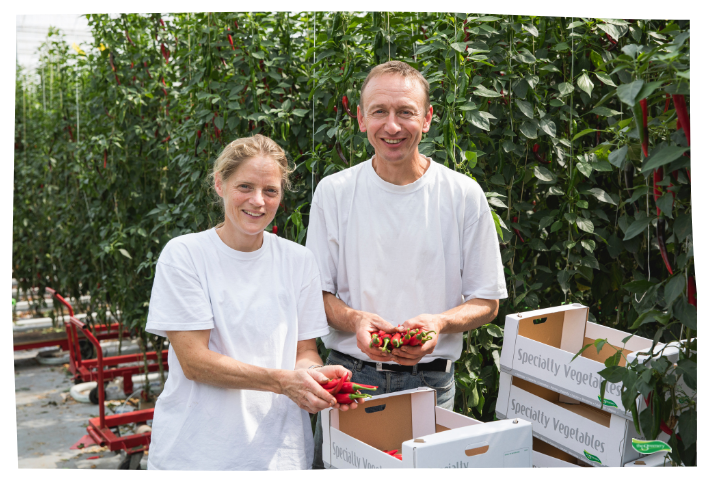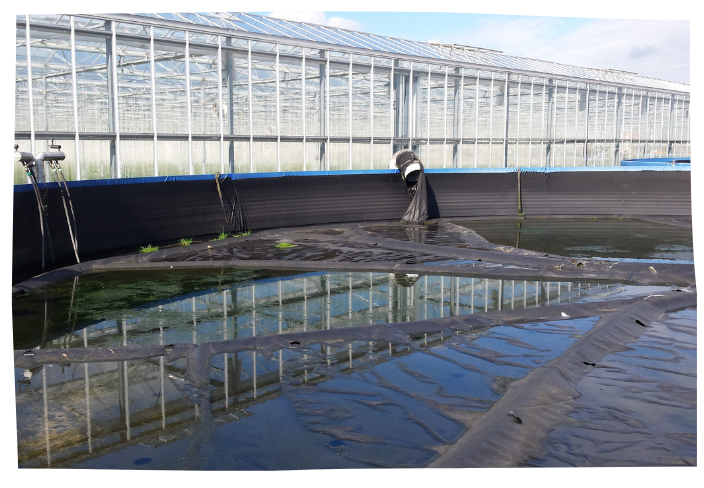Arable crops, fruits, and vegetables
The production of potatoes, fruits, and vegetables demands a lot from the world. A conscious choice in the supermarket helps to reduce the environmental impact of that production. You can do so by choosing more sustainable products with the quality label On the Way to PlanetProof. This label imposes strict sustainability requirements on production. This makes them better for nature, climate and animals.
Are you curious about what the certificate holders must do? Read on!
Farmers and horticulturists ensure that they:
- use less energy;
- reduce greenhouse gas emissions;
- keep water clean;
- use fertilizers intelligently;
- prevent soil erosion.

Photo: The Greenery
Respecting the environment
To properly preserve crops during storage and control diseases, pests and weeds, farmers use protective equipment. On the way to PlanetProof has strict requirements for this. Certificate holders may only use a limited number of (biological) agents. Do they use unauthorized agents? Inspectors will see this during inspections around the harvest. This will have consequences for the farmer.
Differences in conventional, On the way to PlanetProof and organic cultivation
Are you curious about the differences between the requirements for conventional (legal) cultivation, On the Way to PlanetProof and organic? We have listed the differences.
Protect the animals
Healthy and fertile soil is necessary for optimal crop growth. Farmers achieve this by incorporating compost into the soil to activate soil life.
Some protectants are dangerous and toxic to insects, such as bees, in and around the land. Farmers not only protect those insects by eliminating hazardous substances, but they also protect birds and bats by creating safe places for nests and shelters.

Smarter use of water
Clean water is important for both people and nature. For crops to grow well, it is necessary to keep the soil and leaves moist. This costs the farmer liters of water and puts pressure on the water quality and availability in the rest of our country. That is why certificate holders use water sparingly. For example, growers collect rainwater and reuse it.
Make trade more sustainable
Packaging in which products are stored and sold must be less harmful to the environment and generate less residual waste. Growers, as well as traders and retailers, do this by using recyclable or biodegradable materials. One of the choice measures is the discard instruction. This tells you which steps you can follow to recycle the packaging.
Sometimes products are packed in plastic. This is often necessary for protecting the product, extending the shelf life, making it transportable and listing product information.


